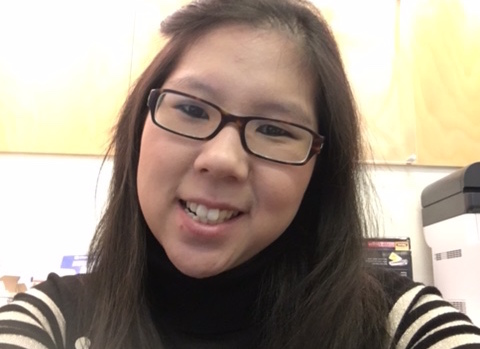Let’s face it, anything with the term “chronic” or “pain” in it can denote some sense of negativity. I’m not going to lie, you’re right about that. But this is where I think the phrase, “When all you have is lemons, make lemonade” comes into play. In my mind you have to — or else you can never get through it.
When I first was diagnosed with chronic pain and then was told, “With each additional surgery you have, you will just become worse,” I felt like someone punched me in the gut. I thought, “But I can’t control when I have surgery. If my shunt decides to stop working, I can’t help that. What is happening to my life?” I had always felt like I had such control over my life, in what I wanted and didn’t want to do. And suddenly, it was like someone took my spot in the driver’s seat and started going 100 miles per hour down the freeway and wouldn’t let me wear a seatbelt. Nothing was in my control anymore. And I couldn’t do one thing about it. I just had to go along with it.
Chronic pain, by definition, is any sort of pain that lasts longer than 12 weeks. More than 12 weeks of pain? Can that even happen? Unfortunately yes, and it’s happening right now to more people than we could have ever imagined. But I realized something after I was given my diagnosis of irreversible nerve damage that will in fact get worse with every additional operation I need (and if I’m just another statistic, I will be receiving brain surgeries every two years for the rest of my life. Sounds pretty shocking, right?)
Well, when I was given these terrible odds, I decided I had to look for some type of good in this. So I thought, “OK, but I’m as healthy as I can be right now.” When you’re chronic, I feel that’s the only thing you can truly ask for. And it’s one of the best lessons I’ve learned through having chronic pain. That is what has gotten me through it, knowing that right now, I’m as healthy as I can be, with the little control I have over my illnesses. You learn to live in the moment, and you learn to be happy in the moment. You learn about little victories.
My chronic pain journey started from the second I took breath outside the womb. I was born a fighter. I had to be. Before my first birthday, I would have a stroke, meningitis and five brain surgeries. Then over the next 26 years, I would have over 30 more, countless bouts of meningitis, and another stroke that savagely stole my ability to talk and walk unassisted. I fought it for a long time, but after awhile, I was sick of fighting something that always seemed bigger than me. It seemed like it was five steps ahead of me and always would be. I learned I would need to make sacrifices, but I could learn to make this work and be just as happy, maybe even find something out about myself in the process.
It was one night after my second stroke when I was lying in bed crying that I started thinking to myself. It was like my conscience was a separate being and it was talking to me. It said, “You can keep crying and feeling bad for yourself — and don’t get me wrong, crying can do you some good in the moment, but rarely does it do good for you days or months down the road. Or you can go out there and show your doctor who said you were never going to be able to accomplish your dreams that he was wrong. It’s your choice.” That was the point when I told myself I might have chronic pain, but I can still do anything anyone else can do. I might have do it a little differently, but it doesn’t matter. There are a thousand ways to get somewhere. As long as you’re happy in the end.
When I look at all the things I’ve been able to accomplish since that night I was crying in bed, I’m in awe. I’ve been able to graduate college, have a full time job and have a social life. I can finally look in the mirror and be happy with who I see staring back at me, because one day 10 years ago, I didn’t even recognize who I saw in the mirror. I’m happy. And self-contentment is one of the only things about chronic pain that I believe we can control.

Follow this journey on Blessings in Hydro.
The Mighty is asking the following: What’s the hardest thing you deal with as someone with a chronic illness, and how do you face this? What advice and words of support would you offer someone facing the same thing? If you’d like to participate, please send a blog post to community@themighty.com. Please include a photo for the piece, a photo of yourself and 1-2 sentence bio. Check out our Submit a Story page for more about our submission guidelines.
